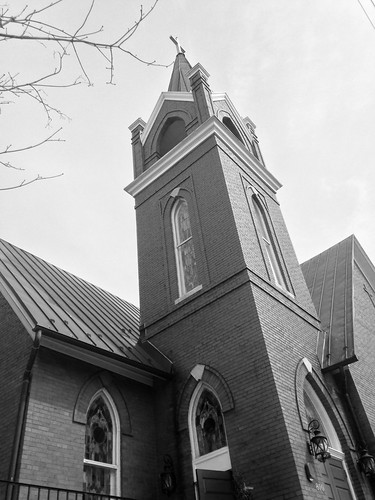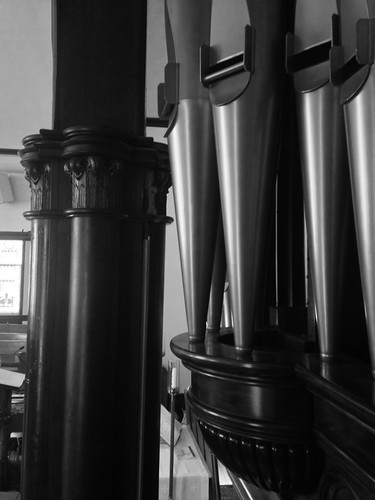
Volume IX, Issue XIII: William Wilberforce (1759-1833).
Portrait by Karl Anton Heckel, 1794
Building the Kingdom II
The term Social Justice is often used in the discussion of finding solutions to societal problems today. Jonah Goldberg describes what it often means today in the following video. But, has the noble quest for human rights and dignity been hijacked from its original purpose? Is there a proper application in the building of the Kingdom of G-d? Today the term is largely associated with government intervention and redistribution, but that was not always the case.
Jamie Casler, Director of Trevecca Nazarine University's J.V. Morsch Center for Social Justice [1.] believes there is indeed a place for Scriptural social justice, saying: "We draw our definition of social justice from the Scripture, not so much from the secular terminology, We try to be very careful to say we're about biblical social justice, not about secular social justice. What we call today 'social justice' the church has commonly called 'compassion ministries'-showing compassion to your neighbor and helping those in need." Casler seeks a return to the Church's role in fostering this sort of compassion.
Carlton Hayes wrote, "From the wellspring of Christian compassion, our Western civilization has drawn its inspiration, and its sense of duty, for feeding the hungry, giving drink to the thirsty, looking after the homeless, clothing the naked, tending the sick and visiting the prisoner." As one writer put it, missionaries and other Christians lived as if people mattered. Revolutionary!
Christianity exploded onto a brutal, heartless Greco-Roman culture. Believers in this radical new religion set a new standard for caring for the ill, downtrodden, and abused, even at risk of death. Through their transformed Christlike outlooks, they established countercultural ways that lead to later innovations: orphanages, hospitals, transcendent art and architecture, and systems of law and order based on fairness, to name a few. In the early church, every congregation had a list of needy recipients called a matriculum. Enormous amounts of charity were given. "Pagan society, through its excesses, teetered on the brink of extinction. Christianity, however, represented . . . a new way." [2.]
THYME presents here the lives of several reformers who's work was clearly rooted in the principles of Scripture.Their work should serve as a model for the building of the Kingdom in our own time.
Without foundations in timeless values, 'Social Justice' becomes simply an excuse for government intervention and redistribution.
The Abolition of Slavery
William Wilberforce
Born to privelege and prone to enjoy the pleasures his status afforded, William Wilberforce would have seemed an unlikely candidate for world changing reformer but G-d in his wisdom had bigger plans for the young dandy. He prepared himself for a life of politics while studying at St John's College, Cambridge.
Then, as now, religion was something considered good 'but not in excess.' Still Wilberforce found himself spiritually hungry and found faith. He sought out the council of John Newton, former slaver turned clergyman. Wilberforce was ready to forsake his place in Parliament to serve G-d but Newton convinced him that his service in Parliament could indeed be a great service to his Creator!
Wilberforce became convinced of two great missions: "the abolition of slavery and the reformation of manners." That is to say reform of society's priorities and treatment of people.
Wilberforce labored for almost half a century to end slavery in the British possessions. He pressed himself to exhaustion and stressed himself to the detriment of his health, but eventually he prevailed. The movie "Amazing Grace" tells of his life and gives a broader picture of the man. He was concerned about mistreatment of animals, healthcare, prison reform and a host of issues that press mankind still.
His work is far from finished. Human Trafficking [click to read] is an issue that modern day persons desiring to follow the lead of Wilberforce must step up to address.
Compassion for Orphans
The House that Faith Built Cared for Thousands
George Müller.
What Can One Do,
Motivated by G-d's Love?
Our small group has been discussing the book Crazy Love [1.] by Francis Chan. There is a brief mention of George Müller, the Nineteenth Century evangalist who is famous for his work with orphans. Müller's story begins in Prussia and continues as he comes to faith as a young man. Motivated by his love for G-d he moves away from some practices in the church such as 'renting' pews. In those days people of means would pay handsomely for the best seats and the Pastor would make a good living from these monies.
George Müller's love for G-d soon moved him to reliance on G-d. When he came to take a church in Bristol, England he declined the salary. He wanted to show people how vast and great G-d really is by trusting Him for his supply. Müller prayed and told his needs to no one, then ministered to the needs of his congregation. When his needs were supplied he gave G-d the glory. In times of waiting for supply he gave G-d the glory.
Seeing the needs of orphan children, George Müller went to his knees on their behalf and G-d provided the means for him to care for them. He eventually built five orphan houses and never once made an appeal for money!
We often read of how G-d worked in the lives of the saints of old. We read Hebrews 11 and see how men and women motivated by the love of G-d lived out that love, but with George Müller's story we have photographs. Here are some old post card views of the orphan house at Ashly Down, built in 1849.
Nineteenth Century rendering of the house at Ashly Down.
The house at Ashly Down.
Children at Ashly Down.
Children at Ashly Down received education and training for future employment. the day started at 6am for the orphans, normal forworking-class children of Victorian times.
While boys would be placed in apprenticeships at age 14, the young ladies would remain until 17. They received training to be Nurses, Teachers and Domestic Servants [as the group in maids' uniforms above].
More on the Life of George Müller [click to read].
The George Müller Foundation [click to read].
Redefining 'Social Justice' [click to read] from World Magazine.
Beck vs Wallis [click to read]. More thoughts on 'Social Justice.'
The house at Ashly Down today. Although the building might seem austere by today's standards it featured high ceilings and three hundred large windows [all donated by a window maker]. By Victorian standards it was a bright environment.
The Story of George Müller
One Man's Journey of Faith Changed History
George was born in Prussia on September 27, 1805 and was in college studying to be a preacher when he became a Christian. In those days some young men saw preaching as a well paying job, not necessarily as a service to G-d. The University at Halle, where young George was studying was a place where one could find bad company.
His father was a tax collector for the government. He gave George a lot of money, and he spent it very foolishly. Young Mueller was known for his wild out of control lifestyle, But his life was transformed when he came to know Christ.
Therefore, if anyone is in Christ, he is a new creation; the old has gone, the new has come!" -- 2 Cor. 5:17
Müller turned from his old ways but still struggled in his desire to follow Christ. He finished his studies and headed for England to begin his career as a preacher.
Soon after coming to England Müller received a deeper Christian experience which entirely revolutionized his life. He became very ill and was at the point of death when he saw what a bad life he had led but realized all his sins were completely forgiven -- that he was washed and made clean, completely clean, in the blood of Jesus. The result of this was great peace. "I longed exceedingly to depart and to be with Christ..." he wrote.
He was sick for two weeks. Then his Doctor said he was better. He was sad. "I wanted to be in Heaven with the Lord, but he gave me grace to do his will.”
He became pastor of Ebenezer Chapel in Devonshire. His marriage to Miss Mary Groves, a Devonshire lady,followed. Their married life was a very happy one.
In those days the church ”rented” pews to the people. Rich families would pay for the best seats while the poorer brother sat in the far corner. Large salaries were paid to the minister.
George did not think this right. He ended the practice of collecting pew rent in his chirch and forsook a salary. He stated that he would look to the Lord he served to meet his needs, not to men.
He and his wife told their needs to no one but the Lord. Occasionally reports were spread that they were starving; but though at times their faith was tried, their income was greater than before. He and his wife gave away freely all that they had above their present needs, and trusted the Lord for their "daily bread."
For therein is the righteousness of God revealed from faith to faith:as it is written, The just shall live by faith." -- Romans 1:17
He and his wife eventually settled in Bristol, England, where they saw many orphans roaming the streets -- uncared for, unfed, often sick, and virtually guaranteed death at a young age. At this time writers like Charles Dickens and William Blake had not yet brought attention to the plight of these children, and NOTHING was being done to help them.
Müller began his labors in Bristol in 1832, as co-pastor with his friend Mr. Craik, who had been called to that city. Without salaries or rented pews their labors were greatly blessed at Gideon and Bethesda Chapels. The membership more than quadrupled in numbers in a short time. Ten days after the opening of Bethesda there was such a crowd of persons inquiring the way of salvation that it took four hours to minister to them.
George and Mary decided to start an orphanage that would be entirely free of charge, and for which they would never ask any money or support. When they had needs they would go to G-d alone, trusting that he would give them everything they needed.
Pure religion and undefiled before God and the Father is this, To visit the fatherless and widows in their affliction, and to keep himself unspotted from the world." -- James 1:27
Among the greatest monuments of what can be accomplished through simple faith in G-d are the great orphanages covering thirteen acres of ground on Ashley Downs, Bristol, England. When G-d put it into the heart of George Müller to build these orphanages, he had only two shillings (50 cents) in his pocket. Without making his wants known to any man, but to G-d alone, over a million, four hundred thousand pounds ($7,000,000) were sent to him for the building and maintaining of these orphan homes. At the time of Mr. Müller's death, there were five immense buildings of solid granite, capable of accommodating two thousand orphans. In all the years since the first orphans arrived the Lord had sent food in due time, so that they had never missed a meal for want of food.
Confess your faults one to another, and pray one for another, that ye may be healed. The effectual fervent prayer of a righteous man availeth much" -- James 5:16
But my God shall supply all your need according to his riches in glory by Christ Jesus." -- Phillipians 4:19
I have been young, and now am old; yet have I not seen the righteous forsaken, nor his seed begging bread." -- Psalm 37:25
Hundreds of children were saved from the mean streets. They knew love and happiness in the care of George and Mary.
In 1875, at the age of 70, the remarkable George Müller decided to devote the next period of his life to a world-wide ministry of preaching and teaching.
During his seventeen years of missionary travel he toured the United States of America three times, India twice and on three occasions toured Australia and the Colonies. In addition, George Müller preached in forty-two countries including China and Japan. By land and sea he traveled 200,000 miles, an extraordinary feat in the nineteenth century.
Charles Dickens
With Six Children to Feed, the Author Needed a Miracle
Frances Alexander's 1842 painting of the famous author.
The Year was 1843 and he needed a miracle. With six children to feed and a large house in London to maintain, his slipping sales as a writer were of great concern. His installment novel: Martin Chuzzlewit, was selling poorly, unlike earlier works like Nicholas Nickleby, which had given him some measure of success.
Christmas was coming as he bitterly confided to a friend that his checkbook was empty. Walking the streets, he came up with a 'Ghost of an Idea' and set to work. He published 6000 copies in time for Christmas distribution. They sold out, but because he had splurged on hand-coloured illustrations by John Leech he barely broke even. [3.] Yes, even in Nineteenth Century England, good illustration cost you something! [4.]
Fortunately the little work went on to be a classic. It reinvigorated the career of its creator. Today we still love A Christmas Carol and its author: Charles Dickens, not only as a writer, but as one who helped to bring about much needed social reforms in his day.
______________________________________________
Binyamin Netanyahu's Big Win

Prime Minister Binyamin Netanyahu of Israel.
Early predictions had Binyamin Netanyahu and the Likud Party not likely to win a clear majority. Major media outlets were predicting a tie at best with the Zionist Party, meaning perhaps a rotating Prime Ministership. Still, as the actual voting occurred a week ago, as "official" exit polls hovered around a tie, The Prime Minister declared the race a victory and began the important process of building coalitions to govern. How could that be possible?
Phillip Pasmanick, who writes: Israel and Stuff [click to read] put it best: "Wait until the IDF votes are counted. He'll have thirty seats!" Sure enough, as the hard results started coming in on Wednesday, Likud had secured the promised thirty seats. You need to know something about Phillip. He's in the IDF and he's up defending the border with Lebanon. Alongside him are arabs; soldiers, also in the IDF. This should begin to give you a glimpse into the under-reported life of this amazing country the size of New Jersey.
It is indeed the only place in the Middle-East where the religious and political minorities live in peace with their majority neighbors, not only enjoying protection from persecution but representation in the Kenesset! Netanyahu's win, remaniscent of Ronald Reagan's unexpected win in 1980, says that there is solid support for his strong stance in defending the stability of the region. Those who truly desire peace in the region will do well to listen to him.


______________________________________________
Restoring Harmony

I have been in Stephens City much of the past week helping master restorer and organ builder, Xaver Wilhelmy as he restores the Estey pipe organ in Trinity Evangelical Lutheran Church. The instrument was likely built sometime in the early Twentieth Century, though we have no known opus number. Here are some photographs from the trip.

The sanctuary itself was completed in 1906.
Photo by Bob Kirchman

The church windows illuminated from within.
Photo by Bob Kirchman

The organ itself was probably installed in the 1930's, having been moved from a church in Baltimore. Photo by Bob Kirchman

Here are some of the motors that play the 1200 pipes.
Photo by Bob Kirchman

Front Pipes. Photo by Bob Kirchman

No comments:
Post a Comment